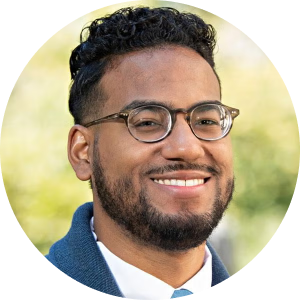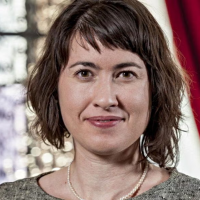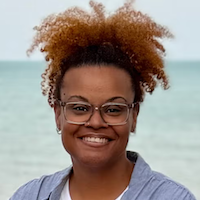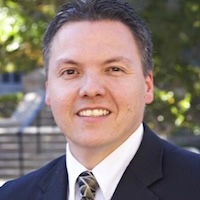Prospective students who apply by the priority submit deadline will automatically be considered for a scholarship. Contact your enrollment advisor with questions about this opportunity.
Where Leaders Transform the World
Learn about our school’s history and what makes our Master of Social Work program unique.
100+ Years of Excellence in Social Work Education
Founded in 1918, the University of Pittsburgh’s School of Social Work has empowered passionate social workers to serve their communities for over a century. Today, we’re more committed than ever to this vital mission, preparing bold leaders to transform social work practice, policy, research and education in a community-engaged and inclusive environment.
Values-Centric.
Mission-Forward.
In accordance with the mission of the social work profession, our Master of Social Work program prioritizes the values of service, social justice, the dignity and worth of the person, the importance of human relationships, integrity, competence, human rights and scientific inquiry. Students benefit from a leading-edge curriculum, world-class faculty and meaningful academic and career support services.
“I chose the University of Pittsburgh’s School of Social Work because I’m a Pittsburgh native and always wanted to attend Pitt. The social work program, in particular, is so renowned and respected that I couldn’t think of anywhere else to complete my master’s degree.”
— Clare Betler, Master of Social Work, Class of 2025
Where Social Work Meets Social Justice
At Pitt, we’re committed to advocating for those who confront barriers to reaching their fullest potential, and this commitment informs everything we do—from education to research and community engagement. We strive to prepare courageous practitioners who are unafraid to ask difficult questions and employ innovative approaches to addressing today’s most complex social challenges.
JEDI-Informed Curriculum
Our curriculum emphasizes justice, equity, diversity and inclusion (JEDI), ensuring students are ready to address the myriad issues they will encounter as social workers.
Center on Race and Social Problems
Established in 2002, CRSP conducts applied social science research on race, color, ethnicity and their influence on the quality of life for all Americans.
Racial Equity Consciousness Institute
Founded in 2021, RECI is dedicated to providing individuals and communities with the tools to deconstruct racism and cultivate racial equity.
Commitment to
Anti-Racism/
Anti-Oppression
The ideals of anti-racism and anti-oppression are central to all we do. We’re committed to advancing them in all business, education and research operations.

“Social work is extraordinary because it is empowering, justice-driven and transformational, equipping you both personally and professionally to engage in lifelong advocacy for equitable systems, policies, research and practices.”
— Victor Figuereo, Assistant Professor
Meet Your Faculty

Yodit Betru
Research interests:
Trauma-informed care/interventions; race-based stress; homelessness; school-based intervention; child welfare issues; and mental health

Jaime Booth
Research interests:
Neighborhood effects on health disparities; use of technology to measure neighborhood dynamics; the role of immigration and acculturation on Latinx adolescent health outcomes; research methods; youth engagement in community processes; impact of stress on health; health disparities; and protective factors.

Stevara Haley Clark
Research interests:
Student success for first-generation and nontraditional students; women’s leadership in higher education; technology and relationship-building in digital learning environments; organizational culture and academic leadership; inclusive and anti-oppressive pedagogy in social work education; and implicit curriculum design for at-risk student engagement

John Dalessandro
Research interests:
Medical social work; mentoring; problem-solving; and supervised student learning
Preparing You for Success
Graduates of our Part-Time Online MSW program option will be ready to succeed as advanced social work practitioners, possessing the skills to:
- Use research to inform practice
- Understand systems of power, oppression and privilege
- Bring a social work lens to theories of human behavior
- Explore social welfare policies and structures
- Dive into the social work process: engagement, assessment, intervention and evaluation
- Embody social work values, ethics and competencies
Accreditation
Pitt’s MSW program is accredited by the Council on Social Work Education (CSWE) Board of Accreditation, the accrediting association for all undergraduate and graduate schools of social work located in the United States.
Where Social Work Meets Social Justice
At Pitt, we’re committed to transforming our world, our future and ourselves.
We develop and sustain collaborative partnerships to understand, prevent and ameliorate complex social problems with innovative approaches that promote justice and equity.